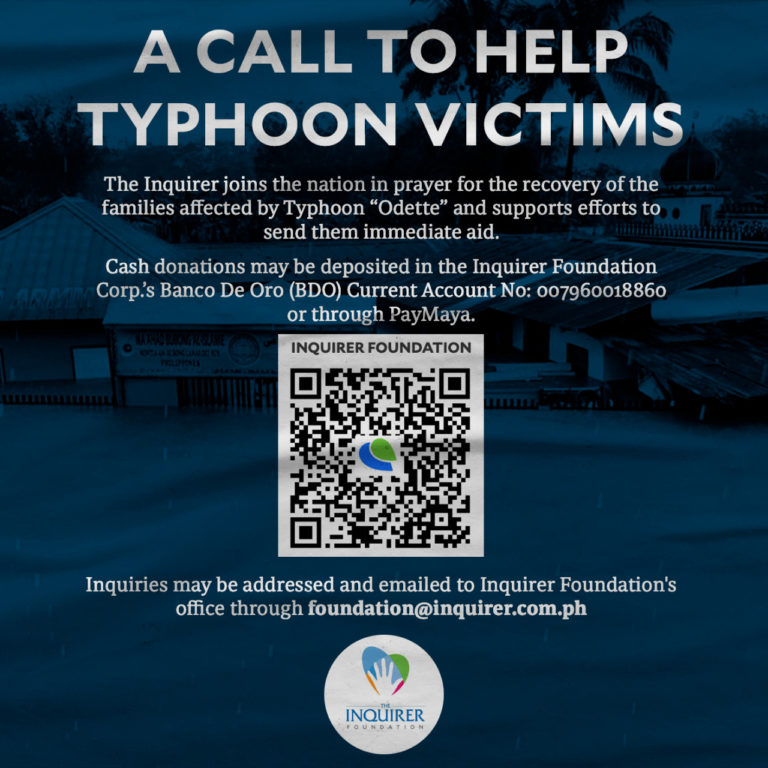Data collection critical to disaster mitigation
On Dec. 16, 2021, Supertyphoon “Odette” (international name: Rai) made landfall as a category 5 typhoon in the Philippines, causing over 400 deaths and an estimated over half a billion dollars of damages to infrastructure and agricultural production. This is hardly an unprecedented disaster for the Philippines. One study by the Asian Development Bank puts the cost of successive typhoons at $20 billion for the country between 1990 and 2020.
In response, the government of the Philippines and its partners have mobilized to reduce the risks and costs of disasters through enhanced disaster preparedness and rapid response mechanisms. The country has made important progress in structuring its disaster management system across all levels of government. Public expenditure on disaster risk reduction amounted to over $3 billion in 2019.
In comparison, the recent announcement by the United Nations Office for the Coordination of Humanitarian Affairs of an investment of $7.5 million in anticipatory action in the country appears almost inconsequential from a budget standpoint. But it has the potential to fundamentally change how the Philippines effectively mitigates disasters. Anticipatory action provides support to vulnerable families after a threatening typhoon has been identified and before landfall, so that they can take measures to prevent the disastrous impacts of storms on their lives. It empowers people to take action before disaster strikes.
Article continues after this advertisementWith Odette, anticipatory action was not triggered by the UN, although nongovernment organizations did deploy similar mechanisms. The reasons for not triggering anticipatory action ahead of Odette must be analyzed and better understood to improve future response. It is likely that the rapid evolution of the typhoon itself, the newness of the initiative, and the limited funding all played a role.
Effective anticipatory action, however, also requires insights into individuals and communities’ level of preparedness for typhoons. Currently, the trigger of anticipatory action is based on environmental factors only (typhoon intensity and path). Risks to individuals and communities are not sufficiently considered in part because such data are not easily available. In effect, anticipatory action at this point remains blind to the degree of preparedness, vulnerability, and resilience of the population along typhoon paths. A nationwide study we at the Harvard Humanitarian Initiative (HHI) conducted in 2017 showed that most Filipinos feel unprepared for typhoons, and many do not know important mitigation measures. But this study is four years old, and recent efforts are not reflected in this data. New granular data are necessary to ensure that anticipatory action can be triggered based on timely, reliable information about the “human terrain.”
To improve anticipatory action, disaster-related data on preparedness and resilience at the individual and community levels need to be routinely collected and made publicly available, in the same manner that government must ensure routine collection of data on demographics, health, and economic indicators to guide public investments. This is a necessary step to ensure that sound data and evidence help drive investments and public policies, and ultimately save lives in the face of recurring disasters, especially in the Philippines.
Article continues after this advertisement* * *
Lea Ivy Manzanero, MA, is a project lead at HHI implementing research of HHI’s Resilient Communities Program in the Philippines. Mark Toldo is the communications specialist of the Resilient Communities Program at HHI. Vincenzo Bollettino, Ph.D., is the director of the Resilient Communities Program at HHI. Patrick Vinck, Ph.D., research director of HHI, is an assistant professor at the Harvard Medical School and Harvard T.H. Chan School of Public Health.

















